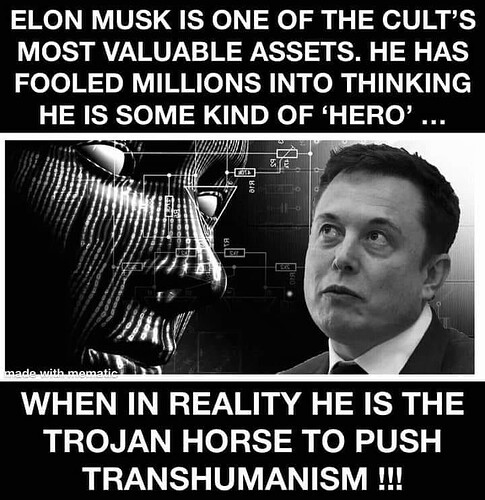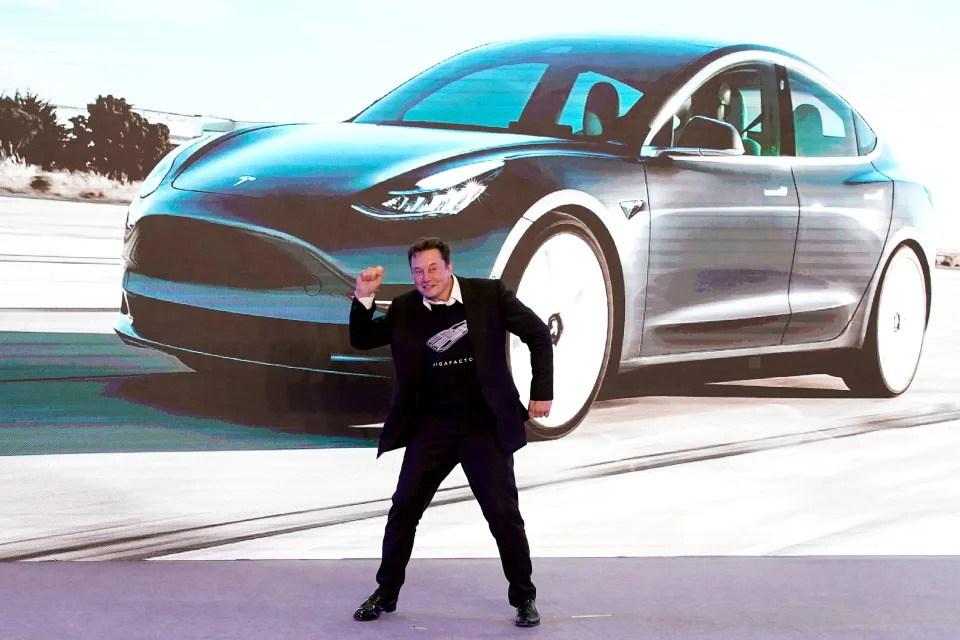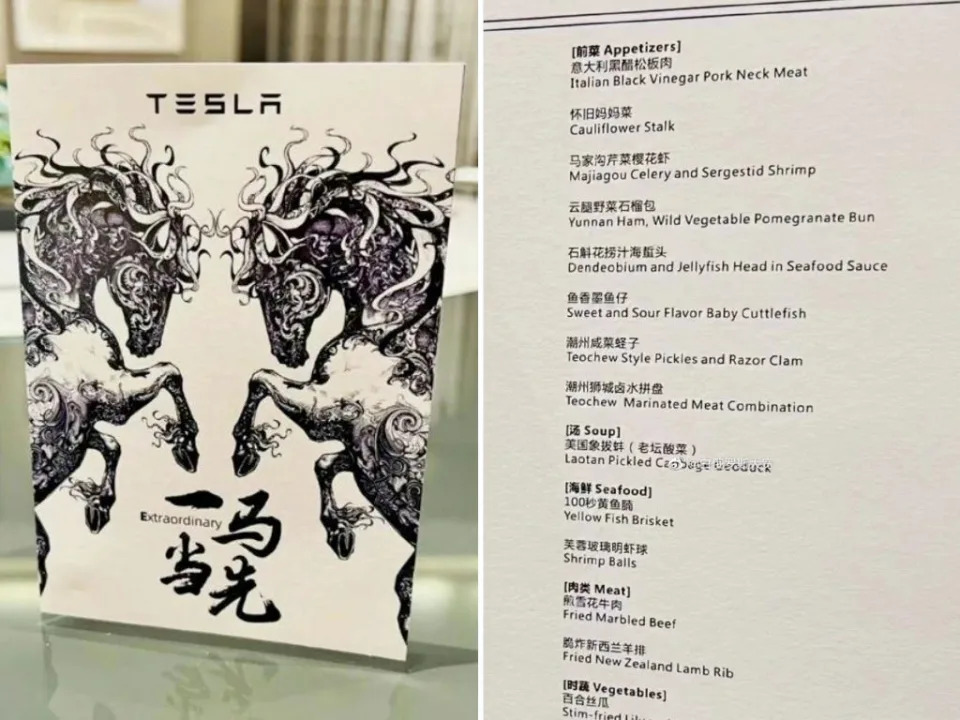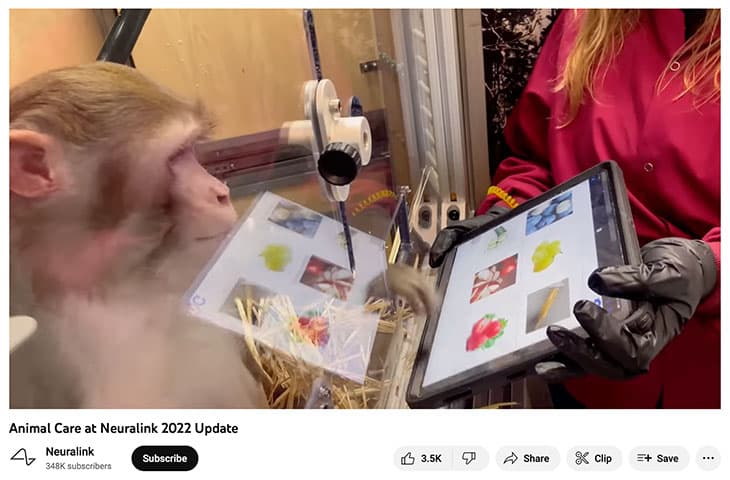
During a Tesla event last month, Musk said “AI stresses me out,” calling it “quite dangerous technology” while admitting “I may have done some things to accelerate it.” Given those concerns, it’s unclear what he will seek to do with X.AI Corp., the latest in a long line of tech firms founded or headed by Musk.
Elon Musk launches AI start-up
The billionaire entrepreneur previously warned of the “profound risks” AI could pose to humanity.
Tesla and SpaceX head Elon Musk has started a new artificial intelligence company called X.AI Corp, according to state business records. The move comes after Musk changed Twitter’s official name to X Corp. and hinted at plans to create an “everything app” simply dubbed “X.”
The AI start-up was incorporated in Nevada on March 9, state filings show, with Musk listed as the company’s director. Former Morgan Stanley executive Jared Birchall, who also serves as CEO for Musk’s Neuralink venture, was named as secretary.
Straight from the horse's mouth.
No emerald mines. Not from a wealthy family. It was all lies about Elon Musk?
https://twitter.com/elonmusk/status/1654971702571331584
I grew up in a lower, transitioning to upper, middle income situation, but did not have a happy childhood. Haven’t inherited anything ever from anyone, nor has anyone given me a large financial gift. My father created a small electrical/mechanical engineering company that was successful for 20 to 30 years, but it fell on hard times. He has been essentially bankrupt for about 25 years, requiring financial support from my brother and me. That said, he does deserve credit for teaching me the fundamentals of physics, engineering and construction, which is more valuable than money, but did not support me financially after high school in any meaningful way. Our condition of providing him financial support was that he not engage in bad behavior. Unfortunately, he nonetheless did. There are young children involved, so we continued to provide financial support for their well-being. Regarding the so-called “emerald mine”, there is no objective evidence whatsoever that this mine ever existed. He told me that he owned a share in a mine in Zambia, and I believed him for a while, but nobody has ever seen the mine, nor are there any records of its existence. If this mine was real, he would not require financial support from my brother and me.
1M Views
Elon Musk’s brain implant company Neuralink announces FDA approval of in-human clinical study.
- Neuralink, the neurotech startup co-founded by Elon Musk, announced Thursday it has received approval from the Food and Drug Administration to conduct its first in-human clinical study.
- The implant aims to help patients with severe paralysis regain their ability to communicate by controlling external technologies using only neural signals.
- The extent of the approved trial is not known. Neuralink said in a tweet that patient recruitment for its clinical trial is not open yet.
'Congratulations Neuralink team!,' Musk Tweeted after the news. Elon Musk's Neuralink gets FDA OK to start trials human trials for brain chips | Daily Mail Online
I stand by my opinion of Elon Musk until further notice (more information is provided). He is the poster child for transhumanism. No sign that he is going rogue; and more likely he is on course with the globalist's agenda. The irony is that he promotes free speech, yet he himself is not free.
(What a bunch of nonsense.)
Understood. No doubt.
Elon Musk hailed as 'Brother Ma' during a trip to China, where he's been lavished with a 16-course meal and treated like a king
May 31, 2023
Elon Musk is making his first trip to China in three years.Aly Song/Reuters
- Elon Musk is getting a royal welcome in China.
- During a surprise visit to the country, Musk has been inundated with high praise, Reuters reported.
- His trip has caused a social-media storm, with people eager to recommend places for him to visit.
Elon Musk received a 5-star welcome during a surprise trip to China as the nation heaped praise on the billionaire, holding him in the same high esteem as business magnate Jack Ma.
Reuters reported that Musk arrived in Beijing by private jet on Tuesday. It was the Tesla and Twitter boss's first trip to China in three years, making his visit a high-profile affair for members of the public. Musk's views on electric vehicles and artificial intelligence are of particular interest.
Since arriving, Musk has been called "Brother Ma" and greeted by top ministers from the Chinese government's foreign, commerce, and industry departments, Reuters reported in a separate article on Wednesday, with social-media users labeling him a "global idol."
People have also taken to Weibo to make recommendations to Musk on what food he should try during his time in China. A viral poll with more than 13,000 votes, seen by Insider, lists foods including Peking duck, street snack "tang hulu" and mung bean dish "douzhi" as options.
Posts on social media, seen by Insider, also show how Musk's menu at a restaurant in Beijing was customized with an image of the Tesla logo and two dark horses accompanied by a Chinese phrase that translates as "the horse that surges ahead of the pack."
Pictures of what's thought to be the menu for Musk's dinner in China are circulating on China's Twitter-like Weibo platform.Screengrab/Weibo
Reuters reported the evening included a 16-course meal shared with battery executive Zeng Yuqun at the Man Fu Yan restaurant.
The praise for Musk in China is in stark contrast to the polarized response the billionaire has faced in the West in recent months, as his ownership and management of Twitter drew criticism and praise alike from users of the app.
March 2, 2023,
Musk has said his brain implant company, Neuralink, will make the paralyzed walk, the blind see and eventually turn people into cyborgs. But the firm still struggles to secure clinical-trial approval for the relatively modest goal of helping disabled people type.
n at least four occasions since 2019, Elon Musk has predicted that his medical device company, Neuralink, would soon start human trials of a revolutionary brain implant to treat intractable conditions such as paralysis and blindness.
Yet the company, founded in 2016, didn’t seek permission from the U.S. Food and Drug Administration (FDA) until early 2022 – and the agency rejected the application, seven current and former employees told Reuters.
The rejection has not been previously reported. In explaining the decision to Neuralink, the agency outlined dozens of issues the company must address before human testing, a critical milestone on the path to final product approval, the staffers said. The agency’s major safety concerns involved the device’s lithium battery; the potential for the implant’s tiny wires to migrate to other areas of the brain; and questions over whether and how the device can be removed without damaging brain tissue, the employees said.
A year after the rejection, Neuralink is still working through the agency’s concerns. Three staffers said they were skeptical the company could quickly resolve the issues – despite Musk’s latest prediction at a Nov. 30 presentation that the company would secure FDA human-trial approval this spring.
Neuralink has not disclosed details of its trial application, the FDA’s rejection or the extent of the agency’s concerns. As a private company, it is not required to disclose such regulatory interactions to investors. During the hours-long November presentation, Musk said the company had submitted “most of our paperwork” to the agency, without specifying any formal application, and Neuralink officials acknowledged the FDA had asked safety questions in what they characterized as an ongoing conversation.
Musk and other Neuralink officials did not respond to requests for comment on the company’s device or its dealings with the FDA. The agency declined to comment on Neuralink, citing laws keeping commercial information private.
The Neuralink sources declined to provide Reuters with the agency’s written rejection, a legally confidential document. The staffers, including four who had read the FDA document and others aware of the agency’s concerns, described the safety issues in interviews, speaking on condition of anonymity.
Such FDA rejections do not mean a company will ultimately fail to gain the agency’s human-testing approval. But the agency’s pushback signals substantial concerns, according to more than a dozen experts in FDA device-approval processes.
“Neuralink doesn’t appear to have the mindset and experience that’s needed to get this to market anytime soon.”
Kip Ludwig, former program director for neural engineering at the U.S. National Institutes of Health (NIH)
The rejection also raises the stakes and the difficulty of the company’s subsequent requests for trial approval, the experts said. The FDA says it has approved about two-thirds of all human-trial applications for devices on the first attempt over the past three years. That total rose to 85% of all requests after a second review. But firms often give up after three attempts to resolve FDA concerns rather than invest more time and money in expensive research, several of the experts said.
Companies that do secure human-testing approval typically conduct at least two rounds of trials before applying for FDA approval to commercially market a device.
Neuralink’s regulatory struggles stem largely from its culture of setting goals for breakthroughs on extremely ambitious timelines and viewing regulators as obstacles to innovation, according to more than a dozen current and former company employees. That leadership style, mirroring how Musk runs electric-car pioneer Tesla, can create vulnerabilities when applied to developing a medical device that must be tested on human subjects before final approval, the staffers say.
Still, Musk retains the full confidence of many loyal Neuralink staffers and some industry investors, who point to his past successes in taking on extreme challenges as the founder of Tesla and rocket-builder SpaceX.
“I definitely would never bet against him,” said Bob Nelsen, co-founder of venture capital firm ARCH Venture Partners, who said he invested personal money into Neuralink. “If he has some bumps in the road with Neuralink, or any other thing, he’ll regroup and figure it out … Just think about it: Those are hard industries with huge safety barriers – cars and rockets.”
Screenshot of a YouTube video Neuralink posted last year touting what the company calls humane animal care. The company’s treatment of research animals is under federal investigation, Reuters reported in December.Neuralink’s focus on speed has contributed to other problems. Reuters exclusively reported late last year that the federal government was investigating the company’s treatment of its research animals. The probe was launched amid growing employee concern that the company is rushing experiments, causing additional suffering and deaths of pigs, sheep and monkeys. Three Neuralink staffers now tell Reuters that company leaders wanted animal experiments accelerated to gather data to address FDA concerns over the human-trial application.
Reuters also broke the news that the Department of Transportation is separately investigating whether Neuralink illegally transported dangerous pathogens, on chips removed from monkey brains, without proper containment measures.
The Department of Transportation said its investigation is ongoing. The U.S. Department of Agriculture’s Office of Inspector General, which is conducting the animal-treatment probe, declined to comment.
“He can’t appreciate that this is not a car. This is a person’s brain. This is not a toy.”
- Former Neuralink employee on Musk’s approach to Neuralink
ELON MUSK DELIVERS SPEECH AT VIVATECH
Elon Musk reportedly microdoses ketamine to treat depression and takes full doses of the drug at parties
Elon Musk has told people he is taking small doses of ketamine to treat depression and has also been seen taking the drug recreationally, a recent report from The Wall Street Journal said.
The publication said the billionaire takes full doses of the drug at parties, citing individuals who have seen Musk use ketamine and other people with direct knowledge.
Musk did not respond to a request for comment from Insider ahead of publication. But the Tesla CEO tweeted about the use of ketamine to treat depression less than two hours after The Journal published its report.
"Depression is overdiagnosed in the US, but for some people it really is a brain chemistry issue," Musk tweeted in the early hours of Tuesday morning. "But zombifying people with SSRIs for sure happens way too much. From what I've seen with friends, ketamine taken occasionally is a better option."
Ketamine is a "dissociative drug" that can impact an individual's visual and auditory senses, as well as produce "detachment from reality," according to the Alcohol and Drug Foundation. Medical professionals commonly use the drug as an anesthetic, but others can also use it illegally as a party drug. The drug can be sold as a white powder, a liquid, or a pill.
July 27, 2023
Last year I published an article about Elon Musk purchasing Twitter, and his desire to turn it into an "everything app" similar to the Chinese WeChat app, which is the main app China uses to combine social media, digital identity, vaccination and medical status, criminal history, tracking and surveillance, digital currency, shopping, carbon footprint, and other digital information. We also reported that several large foreign Twitter investors had received access to confidential information about the social network, possibly including its users' personal data and financial statistics as part of Elon Musk's deal on his Twitter acquisition. Musk's plans to turn Twitter into an "everything app" that would provide new levels of tracking individuals is apparently becoming a reality, as Musk changed the name of Twitter to "X" earlier this week. Forbes reported: "Elon Musk’s abrupt decision to do away with Twitter’s iconic blue bird and rebrand as “X” erased one of social media’s most recognizable brands overnight and potentially killed billions in brand value, but marketing and branding experts told Forbes the unconventional and seemingly reckless strategy signals the start of Musk’s promised “everything app” and could have more to it than meets the eye. The change was unsurprising—Musk has been open about his ambition to build an “everything app” like China’s WeChat and has already changed the business name to X Corp—but it was sudden." Like Sam Altman's WorldID and WorldCoin, the U.S. Government may soon be using "X" to distribute things like Universal Basic Income ("Free" money) in return for biometric scans of various parts of your body.
Tick indeed! As in blood-sucking parasite (slow kill).
Indeed.







